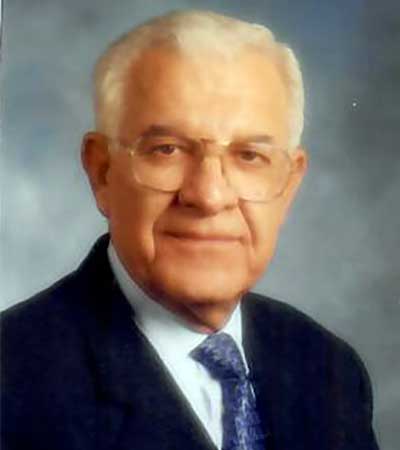The Israeli Law of Return: An Affront to the Universal Principle of Equality before the Law – by Dr. Anis Kassim
It is almost unheard of for a functioning democracy to fail to uphold equality before the law, as this is not just morally indefensible but also violates universal values and principles. This is clearly recognised by Article 7 of the Universal Declaration of Human Rights, which stipulates that “[a]ll are equal before the law and are entitled without any discrimination to equal protection of the law”.
Almost all countries in the world enshrine equality as a constitutional principle. When any act of ethnic or racial discrimination occurs on their territory, it violates the law of the land. This is not the case in Israel, where the law bestows “rights” on one ethnic group (Jews) and deprives all others of their inherent rights. In Israel, the Law of Return, the subject of this brief, is one clear example of this legally-authorized racial discrimination. This contradicts international law, which maintains that a system of apartheid is in place when ethnic groups who live in the same country are subject to different laws.
On July 3rd, 1950, the Law of Return and the Nationality Law bills were submitted to the Knesset, the Israeli legislative organ. The former focuses exclusively on Jewish immigration to Israel and the latter addresses the Israeli citizenship of Jews and non-Jews.[1]
When David Ben Gurion, Israel’s first prime minister, introduced the bill of the Law of Return, he argued that the “Jewish people” were historically bound to Palestine, and claimed Israel’s mission was to draw the scattered Jews back to their homeland. He made the Zionist intention of the bill explicitly clear when he said:
This law does not provide for the State to bestow the right to settle in Israel upon the Jew living abroad; it affirms that this right is inherent in him from the very fact of his being a Jew…. The State does not grant the right of return to the Jews of the diaspora. This right preceded the State; this right built the State; its source is to be found in the historic and never-broken connection between the Jewish people and the homeland.[2]
The draft law was summarily debated and was unanimously adopted amid a fevered atmosphere after just one reading on 5th July, the anniversary of Theodor Herzl’s death.
It became law the next day. After failing to find an appropriate Hebrew word, Ben Gurion reverted to English, and described the law as a “challenge” to the Jews of the world who would no longer be barred from Israel.[3]
While immigration law is normal in almost any state, in the Zionist context it functions as one of “the main tools shaping the composition of the [Israeli] People”.[4] More precisely, it is a tool that facilitates the “ingathering of the exiled Jews” in Palestine and thereby guarantees the dominance of the Jewish majority over Palestinians.
The first article of the Law of Return (the “Law”) establishes that “[e]very Jew has the right to come to this country as an oleh” (immigrant).[5] This was the “original sin” in the building of a state based on racial discrimination. Immigration to Israel becomes a matter of “right” if the immigrant is an oleh, a status that is only open to Jews. An indigenous Palestinian has no such inherent right even if he used to live on the land before the establishment of the state of Israel or still lives in a tent just across the border.
In order to appreciate the discriminatory nature of this Law, it should be recalled that it was originally introduced to the Knesset with the Nationality Law. The latter makes special provision for the oleh’s acquisition of Israeli citizenship. Article (1) provides that “Israel nationality is acquired by return” and Article 2(a) establishes that, under the Law of Return, every oleh is entitled to become an Israel national.”[6] This is why every Jew who came to Israel as an oleh (immigrant) “immediately” became a citizen of the country. Accordingly, he/she would not have to apply for citizenship or reside for a period of time as it was presumed he/she was “returning home”. By implication, no oath of allegiance or declaration of his/her desire to become an Israeli citizen was required or expected. Indeed, the precise opposite – any Jew who enters the country is legally required to explicitly inform an Israeli official that he/she does not want to become an Israeli citizen. The drafting of Article 2(c)2 subtly established this by clarifying that nationality by return “does not apply”
[t]o a person of full age who immediately … declares that he does not wish to become an Israel national.
All indigenous Palestinians, who remained in Palestine after the ethnic cleansing operation of 1948/49, were stripped of their Palestinian citizenship and remained stateless for about thirty years after the establishment of Israel.
The oleh who “returns” to his/her “homeland” can enter Israel from any entry point without obtaining a visa. Article (1) of the Law of Entry into Israel establishes[7] that:
The entry of a person, other than an Israel national or an oleh under the Law of Return… into Israel shall be by visa, and his residence in Israel shall be by permit of residence, under the Law.
The law exempts a Jew, irrespective of his/her nationality, from the need to obtain an entry visa for Israel or a residency permit. But an indigenous Palestinian expelled from his/her hometown cannot obtain either. It is legally established that a Palestinian from Haifa who is a citizen of Israel cannot claim family union if his/her spouse is a Palestinian from Nablus,[8] and the reason is simply that he/she is not a Jew.
An oleh does not need to own a real property of his own in Israel because 93 percent of the land left by Palestinians was colonized by Israel’s State Land Development Authority and its subsidiaries, the Jewish Agency and Jewish National Fund.[9] The products of this colonization were then registered in the land registry as the “inalienable property of the Jewish people”. Accordingly, a Brazilian or Italian Jew who has never visited or lived in Palestine has an “inalienable” right to own real property in Palestinian land on the grounds that he had “returned” or would be “returning home”. This is just one of a number of discriminatory laws based on a clear distinction between Jews and non-Jews.
One of the most explicitly Zionist aspects of the Law is the definition of a “Jew” or an oleh. It is therefore interesting to note that the Law did not initially define either; it was actually the High Court of Justice, in its role of legal guardian, that provided the original definition, which was later codified by a 1970 amendment to the Law.
The religious law (Halacha) defines a Jew as a person born to a Jewish mother or a convert to Judaism, and it establishes he/she will remain a Jew even after becoming a Christian or Muslim. Zionist jurisprudence adopted the first but not the second half of this definition. It instead defines a Jew as a person born to a Jewish mother or a convert, but denies this status to those who have left Judaism for another religion.
The “Jew” can be an atheist or a non-believer, but cannot follow another religion. And this is how Zionism converted Judaism into a nationality. In the hands of Zionism, religion is simultaneously a nationality, and a “Jew” is not therefore a national of the “Israeli people” but rather the “Jewish people”.[10]
This was established by a ruling in probably the most important court case on this subject. The plaintiff in Refeisen v. Minister of Interior[11] was born in Poland to Jewish parents and later converted to Catholicism before migrating to Israel, where he invoked the doctrine of Return, and claimed it upheld his right as a Jew to become a citizen of Israel. The Court rejected his application and observed: “[A] Jew who becomes a Christian cannot be called a Jew. For experience teaches us that the apostate’s end is to be cut off root and branch from the people, for the simple reason that his children will intermarry with those of other nations.”
Another judge from the voting majority was even more explicit, and claimed that the plaintiff, in converting to another religion, “has dissociated himself from the common fate of the Jewish nation”; by implication, it was appropriate and even required to draw “the line dividing Jew from non-Jew within the meaning of the Law of Return, at the point of change of religion”.
The ruling established a principle central to Zionist dogma. When the Court provided a different ruling in the Shalit case,[12] a veritable legal earthquake shook Israel. Shalit was a naval officer married to a non-Jewish woman. He wanted his two children to be registered as Jews, but only on the basis of nationality and not religion. The Court granted the plaintiff’s request by a majority, despite the fact the children’s mother was a gentile. In departing from and potentially undermining the cardinal Zionist rule, the ruling created havoc within the country.
Golda Meir, the-then prime minister of Israel swiftly reacted to the judgment by introducing a second amendment to the Law. It reads:
For the purposes of this Law, “Jew” means a person who was born of a Jewish mother or has become converted to the Judaism and who is not a member of another religion.[13]
This amendment swiftly slammed the door on the prospect of any further departure from the rule, which continues to be the source of all discriminatory legislation and practice in the country.
[1] – The Jerusalem Post, July 4, 1950.
[2] – Quoted in M.D. Gouldman, The Right to Return and the Problem of the Fugitive offender in U.Yadin (ed., 1966), ISARELI REPORT TO THE SEVENTH INTERNATIOAL CONGRESS OF COMPARATIVE LAW.
[3] – The Jewish Agency’s Digest of Press and Events, Vo. IV, p. 1674 (1951).
[4] – Mazen Masri, The Dynamics of Exclusionary Constitutionalism – p. 110 (2017) (Emphasis in the original)
[5] – Text in 4 Laws of the State of Israel, p. 114(1950) All subsequent amendments did not affect the text of Article 1 of the Law.
[6] – Text of Nationality Law in 6 Laws of the State of Israel, p.50 (1952).
[7] – 7 Laws of the State of Israel, p.159 (Hebrew dates omitted) (1952)
[8]- Art. 2 of Citizenship and Entry Into Israel Law (temporary provision) 2003. See an excellent and comprehensive analysis of this issue in Hassan Jabareen, How the Law of Return Creates One Legal Oder in Palestine, 21 Theoretical Inquiries L. p. 459(2020).
[9] – See the relevant laws dealing with land colonization and apparatus in II The Palestine Yearbook of International Law, at pp.193-223 (1985).
[10] – The best explanation of this thicket issue is in the debate of judges in the Israeli High Court of Justice in the case cited in 11 below.
[11] – Judgment in 1 SELECTED JUDGMENTS OF THE SUPREME COURT OF ISRAEL (A.F. Landan ed.,, 1971)
[12] – Id., 35
[13] – Art. 4B of the Amendment to the Law of Return in 24 Laws of the State of Israel p.29(1970)
Dr. Anis F. Kassim
Dr. Kassim started his university studies in Damascus, then moved to the United States, where he obtained his doctoral degree (S.J.D) in law from George Washington University in 1973. He worked with Sun Oil Company (now Sunco) in Philadelphia from 1973 until 1975, then as the legal counsel to the Industrial Bank of Kuwait (KSC) from 1975 to 1977. He became a partner and manager of a law firm called Al Saleh, Graham & James Legal Consultants in Kuwait from 1977 until 1991. Dr. Kassim currently works from his legal office in Amman. He served as a judge at the Administrative Tribunal of the Arab League between 1981 and 1984. Dr. Kassim was editor-in-chief of the Palestine Yearbook of International Law from 1984 to 2000, and still serves as an editorial advisor. He was a member of the Palestinian defense team in the case against the Israeli separation wall at the International Court of Justice. Between 1997 and 2007, he represented the Jordanian government and the PLO before the United Nations Compensation Commission to assess the damages inflicted by the Gulf War of 1990 on Jordanian and Palestinian individuals and corporations. Dr. Kassim also served as a legal adviser to the Palestinian delegation in the peace negotiations held in Madrid and Washington from 1991 to 1993.



